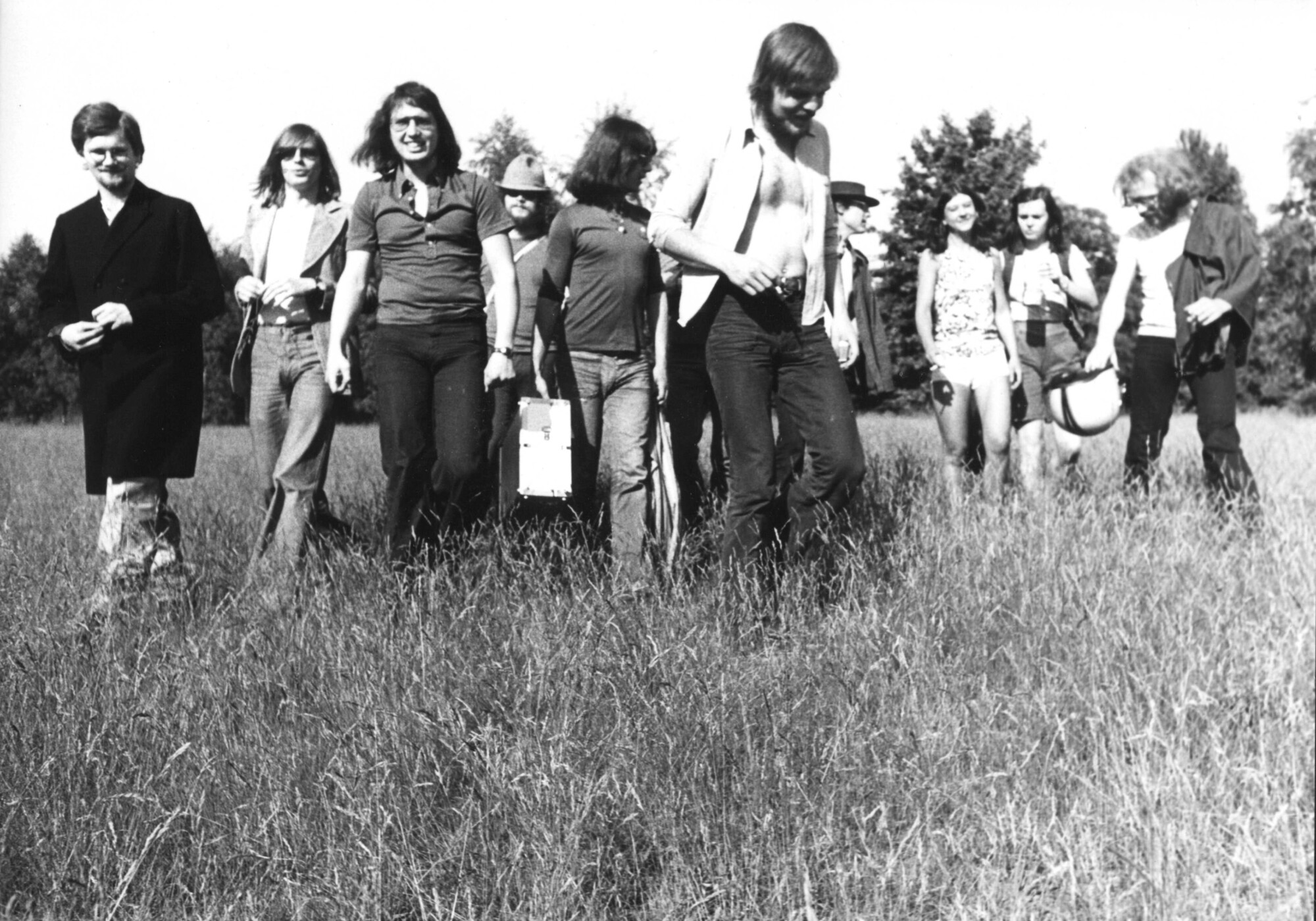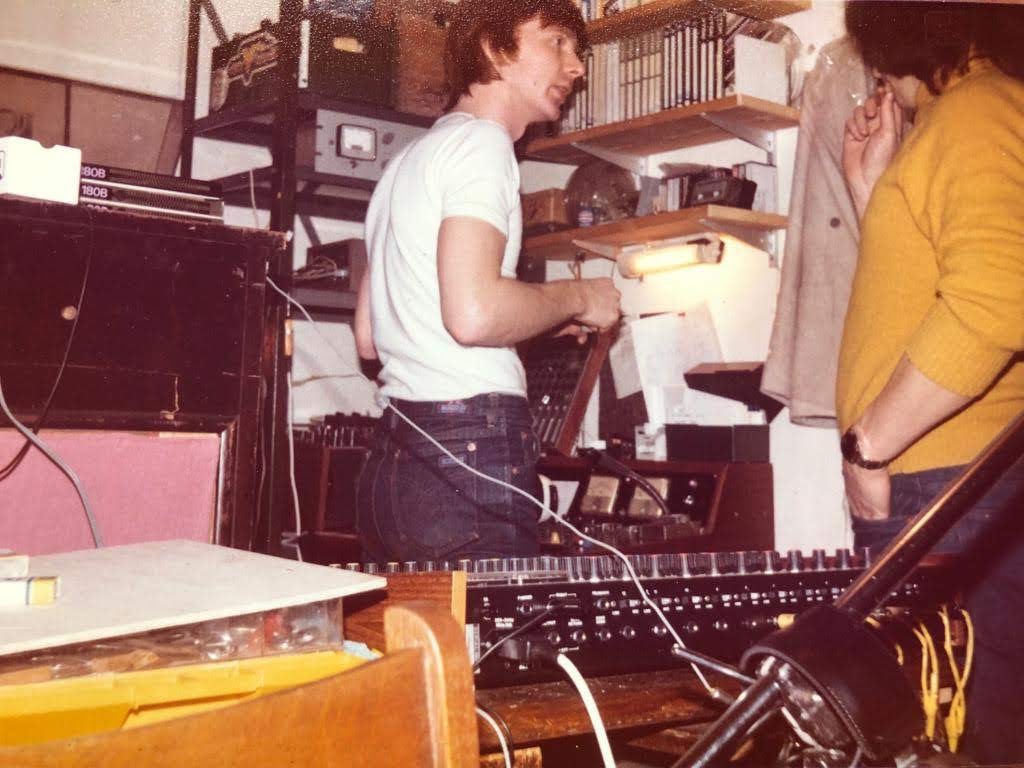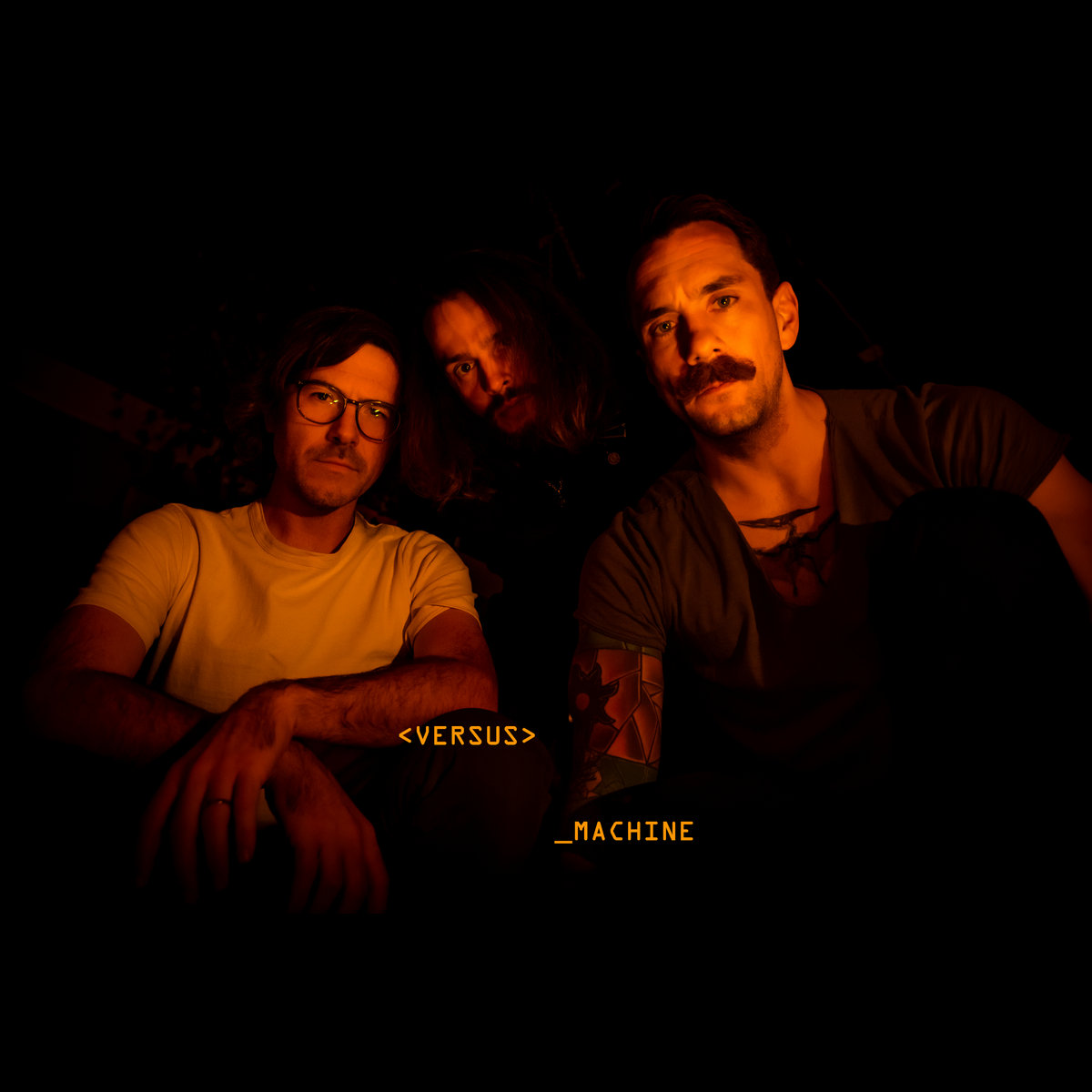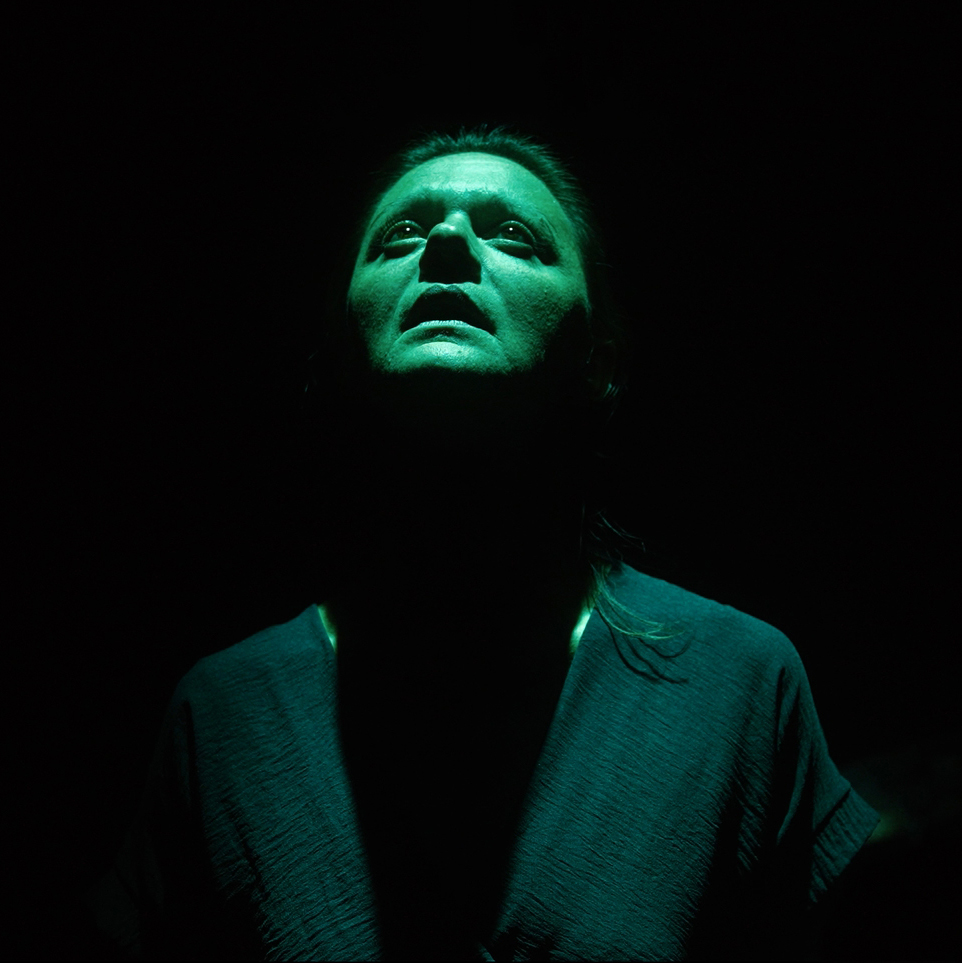Os Mundi | Interview | “Latin Mass”
Os Mundi are one of the most important bands of the early Berlin underground scene.
Os Mundi formed from the ashes of Safebreakers and Orange Surprise, changing into Os Mundi in 1969. The band’s initials “OS” gave rise to the name Os Mundi, Latin for “The World” – apt when their debut LP was called ‘Latin Mass’. Os Mundi played heavy progressive rock with touches of jazz on their second album. A third album was never properly completed, although the band did exist on and off until 1980.
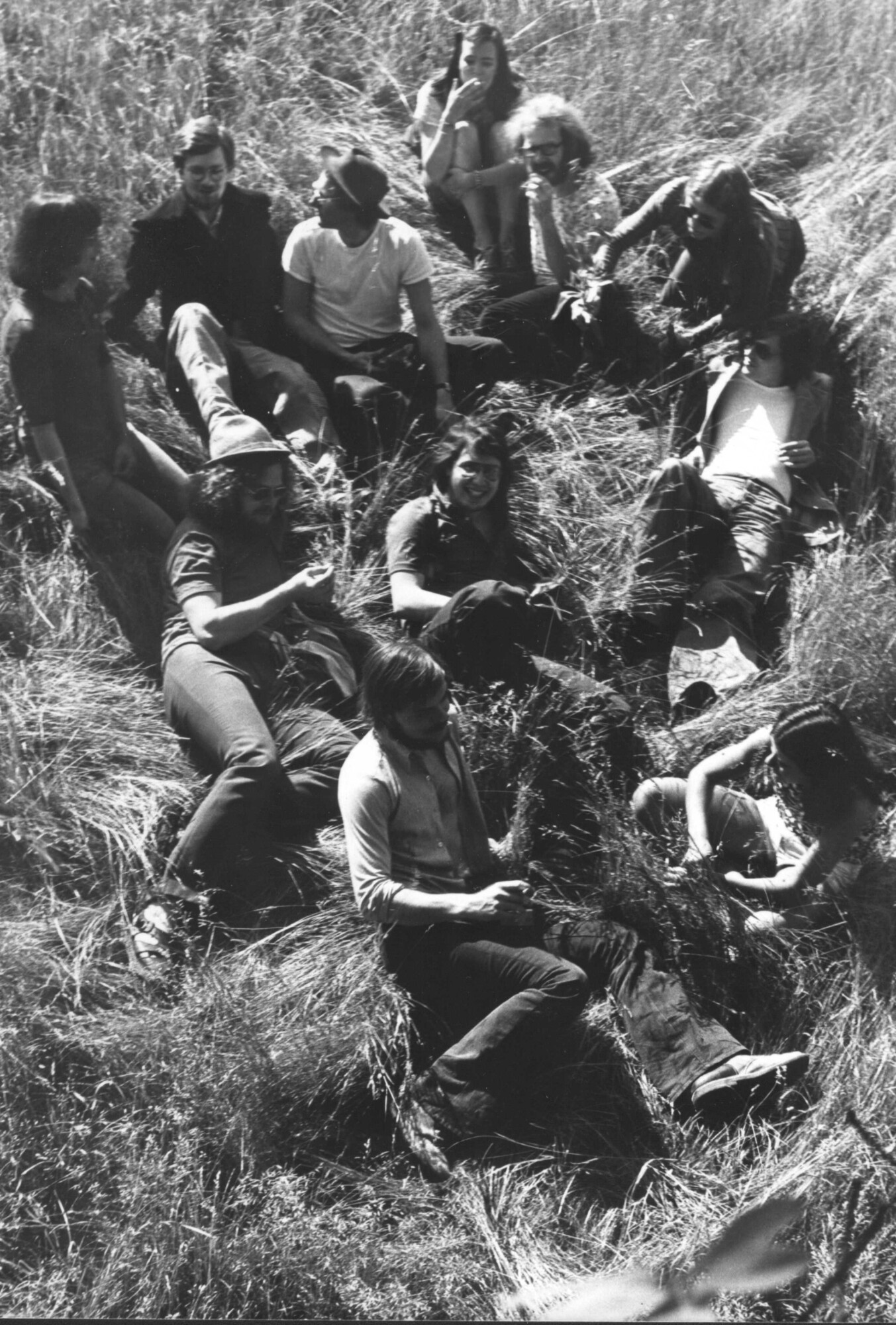
“Nobody had ever done something like this in Germany before”
Would you like to share about your upbringing? Where did you all grow up?
Christoph Busse: The band members mostly came from Berlin and had previously played in different groups, playing different styles: beat band, psychedelic, free jazz, classical, funk music. The band founders had known each other since high school and had already founded their first band there in the 60s. It was first a skiffle group The Funnies, then the beat band the Safebreakers, followed by the psychedelic band Orange Surprise. Then everyone briefly went their own way. In the 70s, the original members of the student band, Udo Arndt, myself and Andreas Villain, founded the fusion band Os Mundi which constantly expanded: two drummers, saxophones, flute, cello, percussion, guitars. Bass, singer… guest musicians.
What was it like growing up in post WWII Germany? Tell us about daily life back in your teenage years.
Christoph Busse: Due to the division of the city of Berlin (building of the Wall), all of our bandmates lived in the western part of the city. It was like a small living room, you didn’t travel much because it was far too complicated because of the annoying border controls. People went to school, went to the bars, listened to the latest LPs by The Beatles and The Rolling Stones and jumped on whatever was new on the market. We met in turns at friends’ apartments, lay on the floor, smoked weed and listened to the latest records. I had a friend at CBS in Frankfurt who regularly gave me new releases as gifts. And CBS had exactly “our” repertoire back then. I had a large room under the roof of my parents’ house where we practiced, much to the chagrin of the (albeit very tolerant) neighbours. Our lives were determined by this and certainly different from those of many of our peers. There were no cell phones, no Netflix, no YouTube. That’s why people sat together much more often than usual today. Berlin was divided into four occupation zones. Most of us lived in the “English” part of the “finer” Charlottenburg.
Was there a certain moment when you knew you wanted to become a musician? When did you first pick up an instrument?
Christoph Busse: I started learning to play the piano at the age of six. Later I had cello lessons for seven years because my high school’s school orchestra needed cello players (you had to play an instrument to get into this high school). When I was 13, my sister’s friend gave me his old drum kit and showed me how to hold the sticks and how to play rhythms. That was easy for me. And so I became the drummer for all my later bands. I then studied filmmaking at the Berlin Film and Television Academy and directing became my main job.
“Our band Orange Surprise was joined by the English flautist Steve Jolliffe, who had previously played with Joint, which then became Supertramp”
What was the scene like in Berlin back in the late 60s? Were there a lot of bands around playing rock music and experimenting?
Christoph Busse: Other young amateur musicians did what we did. A music scene quickly emerged with various beat bands that performed in some youth club every weekend. Every district, every school had “its” band and their fans. There were competitions that the Safebreakers even won once. Our band Orange Surprise was joined by the English flautist Steve Jolliffe, who had previously played with Joint, which then became Supertramp. A flute player from England in a Berlin band was of course exciting.
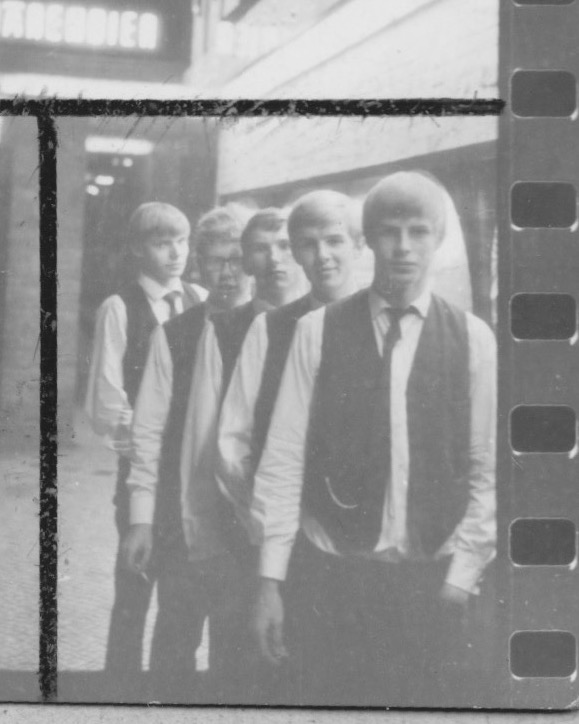
Tell us about Safebreakers and Orange Surprise. Die Safebreakers released a single? What about the Orange Surprise?
Christoph Busse: The Safebreakers released a German-language single. A-side: Cover version of ‘Hey, Patsy Girl’. The B-side was “Hey Girl” by The Small Faces. Was a flop. The band then recorded the film music for the German film “Mädchen Mädchen”. Orange Surprise with Steve Jolliffe only made music for the films I made as a student at the film academy. My graduation film was sold to Second German Television (ZDF) and broadcast.
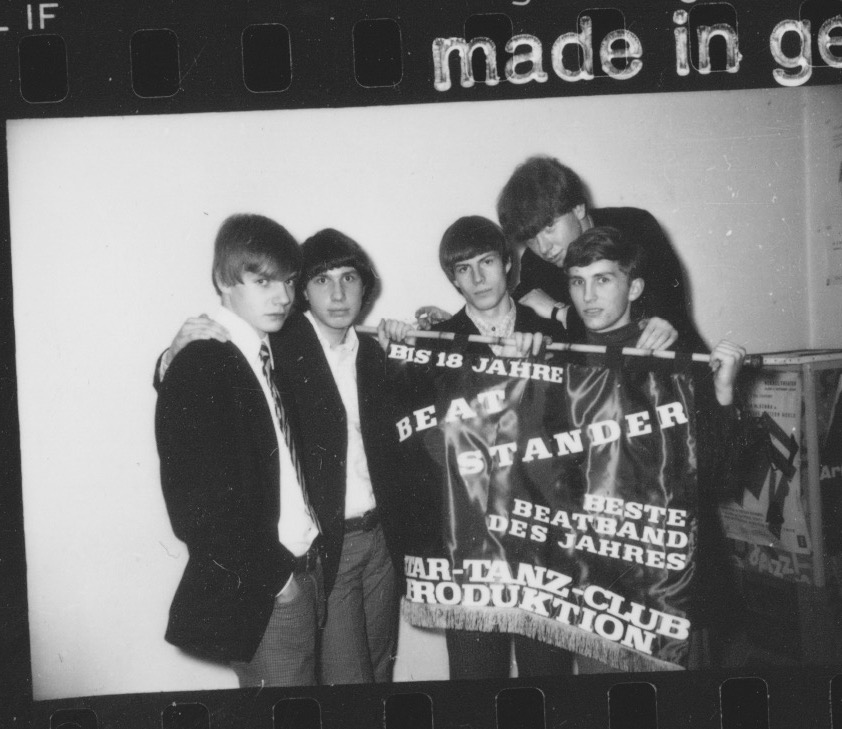
Orange Surprise featured Steve Jolliffe. How did you meet him?
Christoph Busse: He wandered around the world. In Berlin, where he studied music at university, he met one of our musicians, came to a rehearsal and was a member of the band straight away. Maybe for a year… then he went to Tangerine Dream and Steamhammer.
What did your repertoire consist of? Are there any unreleased material from those early bands?
Christoph Busse: The Safebreakers started with cover versions of popular hits. Later we wrote our own songs, but they were never released on record. There are still a few recordings that I saved digitally.
Was there a certain scene you were part of, maybe you had some favourite hangout places? Did you attend a lot of gigs back then?
Christoph Busse: Various gigs in West Berlin. After Os Mundi disbanded, the band played an “Os Mundi revival” concert in Berlin in front of a sold-out crowd on two evenings in a row once a year in the famous Quartier Latin. Of course we had our favorite bars. But who still knows them today?
What led to the formation of Os Mundi and how did you originally meet other members of the band?
Christoph Busse: That was a natural process. The basic formation was already there from Orange Surprise. One by one, a band member brought a new colleague with him to the rehearsal.
There must be a story about how you named the band Os Mundi?
Christoph Busse: The first letters of Orange Surprise are O and S = os And since we recorded the Latin Mass…. os means mouth/face / mundus means world – So os mundi= language (mouthpiece) of the world. Then I notice that Os Mundi’s initials spell out OM. A mantra…
Did the band play a lot of shows before recording your debut album? How did you get signed to the Metronome label?
Christoph Busse: Yes. In Berlin. I made an album of children’s songs for the company Metronome Records. That’s when I came into contact with the people from the Brain label, who were just starting to release various German bands at that time.
Besides the album, did you release singles as well? Did you get any airplay or even some press at the time?
Christoph Busse: No and no. Just the usual record company promotional material.
What are some of the strongest memories from recording and producing ‘Latin Mass’? Was there a certain concept behind it?
Christoph Busse: Nobody had ever done something like this in Germany before. We sang ‘Latin Mass’ in Latin. We didn’t want to sing English like everyone else and German music mostly consisted of pop music. That’s why we chose Latin. We used the original text of the Catholic mass.

Do you know how many copies were pressed?
Christoph Busse: Maybe 1,200 copies. Sales number: approx. 1,000 copies.
Would you say it was a concept album?
Christoph Busse: Yes.
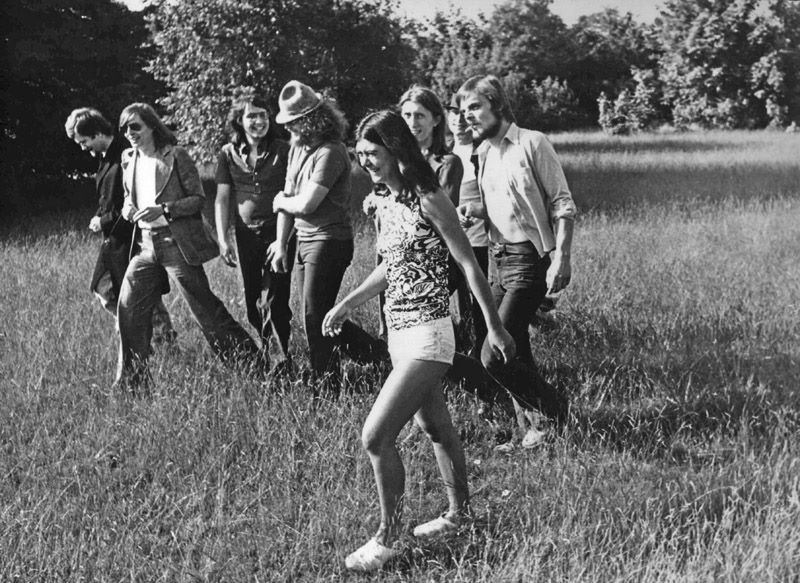
What happened next? What clubs did you play and what are some of the bands you shared stages with?
Christoph Busse: Not much. We played gigs in and around Berlin. We had a slowly growing fan base. Then in 1972 Metronome made us an offer for a second album, which was then produced by the popular producer Conny Plank.
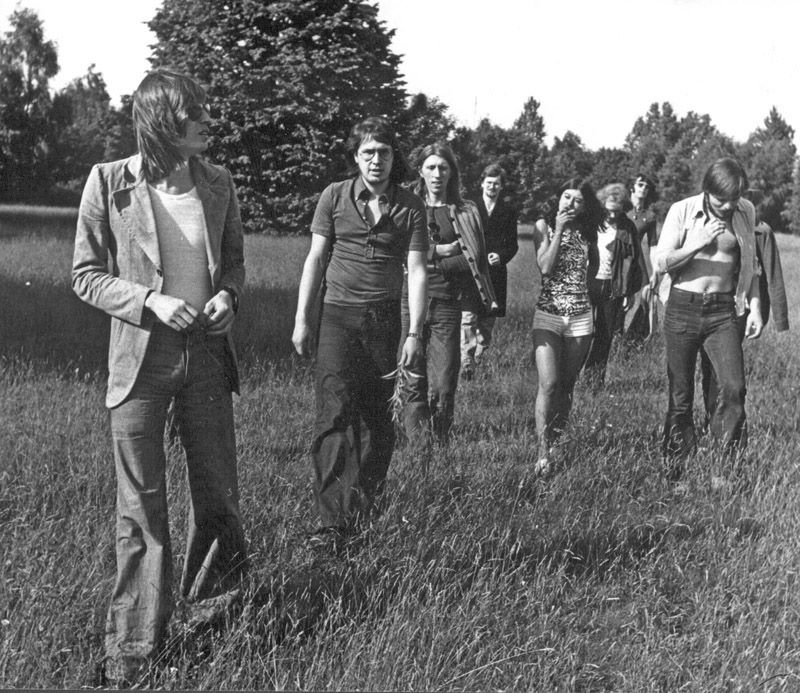
Please share the recollection of recording ’43 Minuten,’ that was issued on Brain. Do you think the label change influenced the overall sound?
Buddy Mandler: Christoph Busse and Udo Arndt were responsible for lyrics and music on this LP…
Christoph Busse: We recorded ‘Latin Mass’ in the small studio of our publisher Bennefeld. Technically not very well equipped. ’43 Minuten’ opened up a new world for us. We were equipped with all the technology we needed in the popular Audio Tonstudio in Berlin. We had an experienced professional at the mixing desk as producer. The Brain label was a Metronome label. There were no differences because we were working without the local record company.
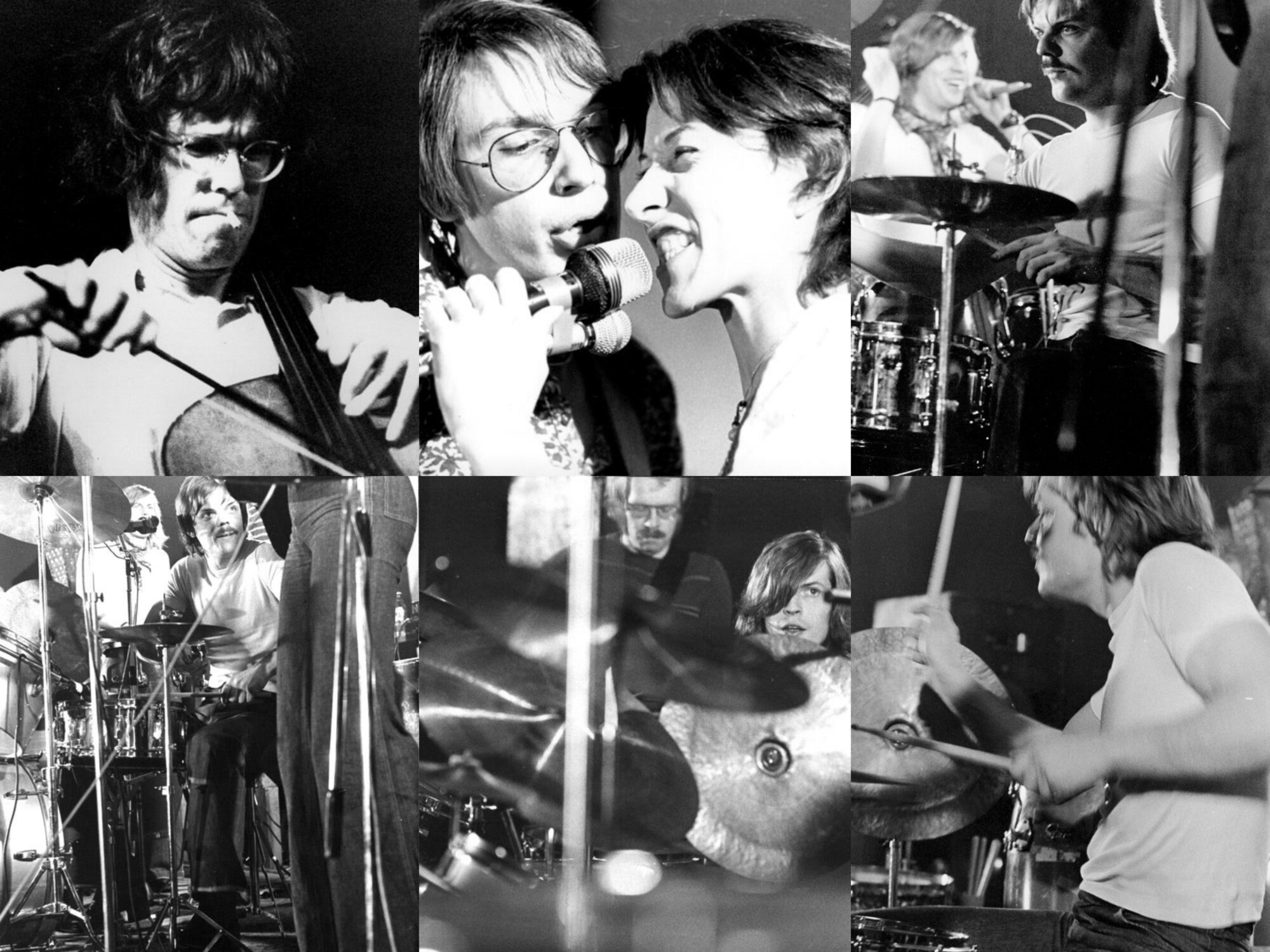
Would you share your insight on the albums’ tracks?
‘A Question of Decision’
Christoph Busse: I had a dream last night… The dream of peace and freedom. In the song the dream becomes reality. I read the news today… It’s all just a matter of choice (of the heart). This number, which is already seven and a half minutes long on the album, was played live for up to 15 minutes.
‘Triple’
Christoph Busse: It means “triple”. A story from everyday life, haha. Why only two people? Why not live as a three? A typical 70s story (shared apartments and stuff).
‘Missile’
Christoph Busse: An instrumental. The title says it all. The band tries to musically represent the flight of a rocket. Mikro plays a virtuoso cello solo.
‘It’s All There’
Christoph Busse: A love song with a bit of philosophy. If there is a right side then there must be a left… You and me and her and him… Everything belongs together. Udo’s voice was sent through a phaser and therefore sounds very “strange”. The music is a bit “flower power.”
‘Isn’t It Beautiful 7/8’
Christoph Busse: Another instrumental. The piece was called live only ‘7/8’. It is played in the 7/8. This gives it a very unique rhythm. Andi’s premiere on an ashtray. If you listen carefully, you can recognize him.
‘But Reality Will Show’
Christoph Busse: An anti-Vietnam war song. Contrast in lyrics and music. We walk through beautiful landscapes, blooming fields, and fragrant flowers. Then… but reality will show… corpses, smoke, devastation. Strong tobacco wrapped in sentimental music. Here it becomes clear why the band was so popular from the left-wing scene.
‘Children’s Games’
Christoph Busse: And the sequel. This is against the GIs. We are the supermen. We’re the supermen, yes we are… we’re the nation’s superstars. It’s just a game we play, like children with mud. The only difference is… we play with blood. This is where we all played up our anger against the war.
‘Erstickübungen’
Christoph Busse: One of those strange Erich Fried poems. Buddy’s girlfriend called us and spoke the text over the phone. Jazzy.
‘Fortsetzung folgt’
Christoph Busse: A mini piece. Simply blues improvisation, with Conny Plank on guitar. Played once, never rehearsed. The promise to continue could not be kept, because Conny had died…
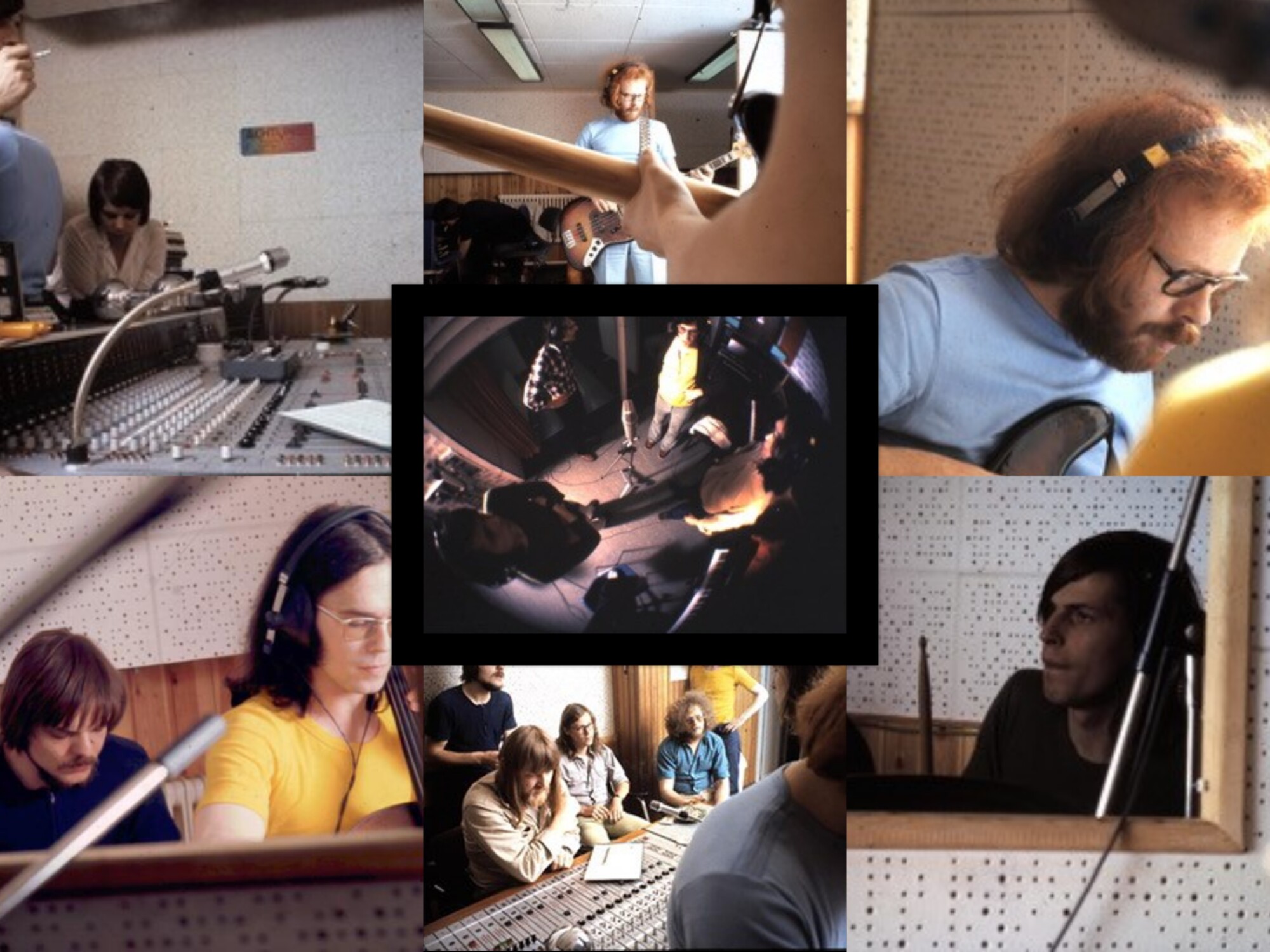
How pleased was the band with the sound of the album? What, if anything, would you like to have been different from the finished product?
Christoph Busse: We were in the studio for about 10 days and nights. I still remember the morning of the 11th day. We left the studio around five in the morning and went to a 24-hour restaurant for breakfast after listening to the album in its entirety three times. All I know is that we were all in a strange mood. Something between elation and melancholy. All groups probably go through this when they record an album over a long period of time. And when listening to the production today, I can say that there’s nothing artificial or la-di-da about it and I can still feel the “spirit” of Os Mundi, which always captured the band the moments we were on the stage.
You can always improve something. You are never 100% satisfied. But we were at that point.
Wolfgang “Buddy” Mandler: We recorded in the fabulous Audio Tonstudio, one of the top studios in Berlin designed by Eastlake Audio. Also, to have a sound engineer/producer like Conny Plank was a great experience and a lot of fun. A bit more about the studio where Os Mundi guitarist Udo Arndt later was one of the four owners.
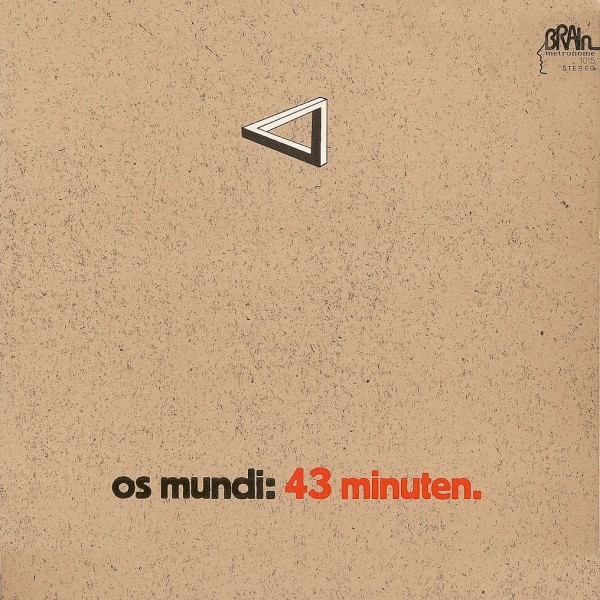
Tell us about the gear you had in the band?
Christoph Busse: Orange amplifiers and speakers. Ludwig drums, cello, flute, Hammond B3 organ, guitars of all kinds…
Wolfgang “Buddy” Mandler: We had a crazy engineer friend who convinced us to build 2 big PA cabinets with a front panel from marble and a triangle form. It was so heavy that we needed 4 people to carry it. He also built a mixing table from spare parts which we got from a friend who worked at AKG.
How often did Os Mundi play live back then? What are some clubs and bands you shared stages with?
Christoph Busse: Once or twice a month at various locations. (Quartier Latin, radio stations like RIAS Berlin and SFB), I no longer have the names in my 76-year-old head.
Wolfgang “Buddy” Mandler: Since we were connected to the alternative student movement in Berlin, we played some events at the University of Berlin. An example was a concert in the Technical University for a campaign called: Homosexuelle Aktion Westberlin, where there were a couple of thousand in the crowd.
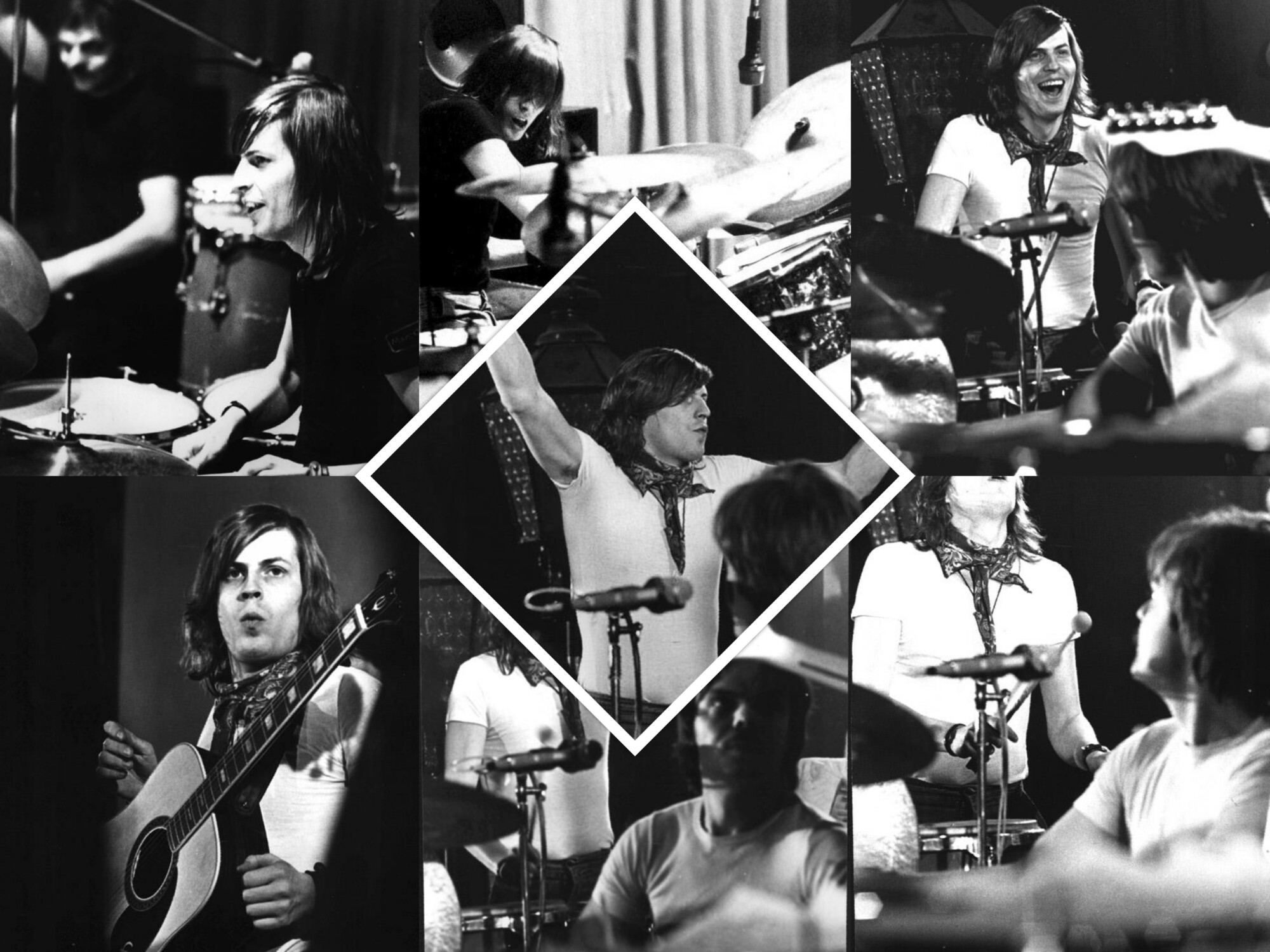
What would be the craziest gig you ever did?
Christoph Busse: I had to play a drum solo in an American army club in Arolsen because the power was out. Horror. I had never dared to do something like that in public.
Wolfgang “Buddy” Mandler: A gig at the Quartier Latin, where we tried to play Haydn Kindersymphonie and then were doing an a capella song which lasted about half an hour.

Have you ever experimented with psychedelics?
Christoph Busse: Never. Smoked a bit of weed at 16.
When did Ute Kannenberg from Metropolis, and Agitation Free main-man Michael Günther joined the band?
Christoph Busse: Ute came along in the mid-70s. Michael “Fame” was rarely there. He was not a permanent member of the band. We had our Andi Villain (RIP Andi and RIP Mikro, cello player).
Wolfgang “Buddy” Mandler: I think Ute joined us in 1974, around the same time as Michael Günther. We also had Bommy Bommarius and Wolfram Jacob as guest musicians at that time.
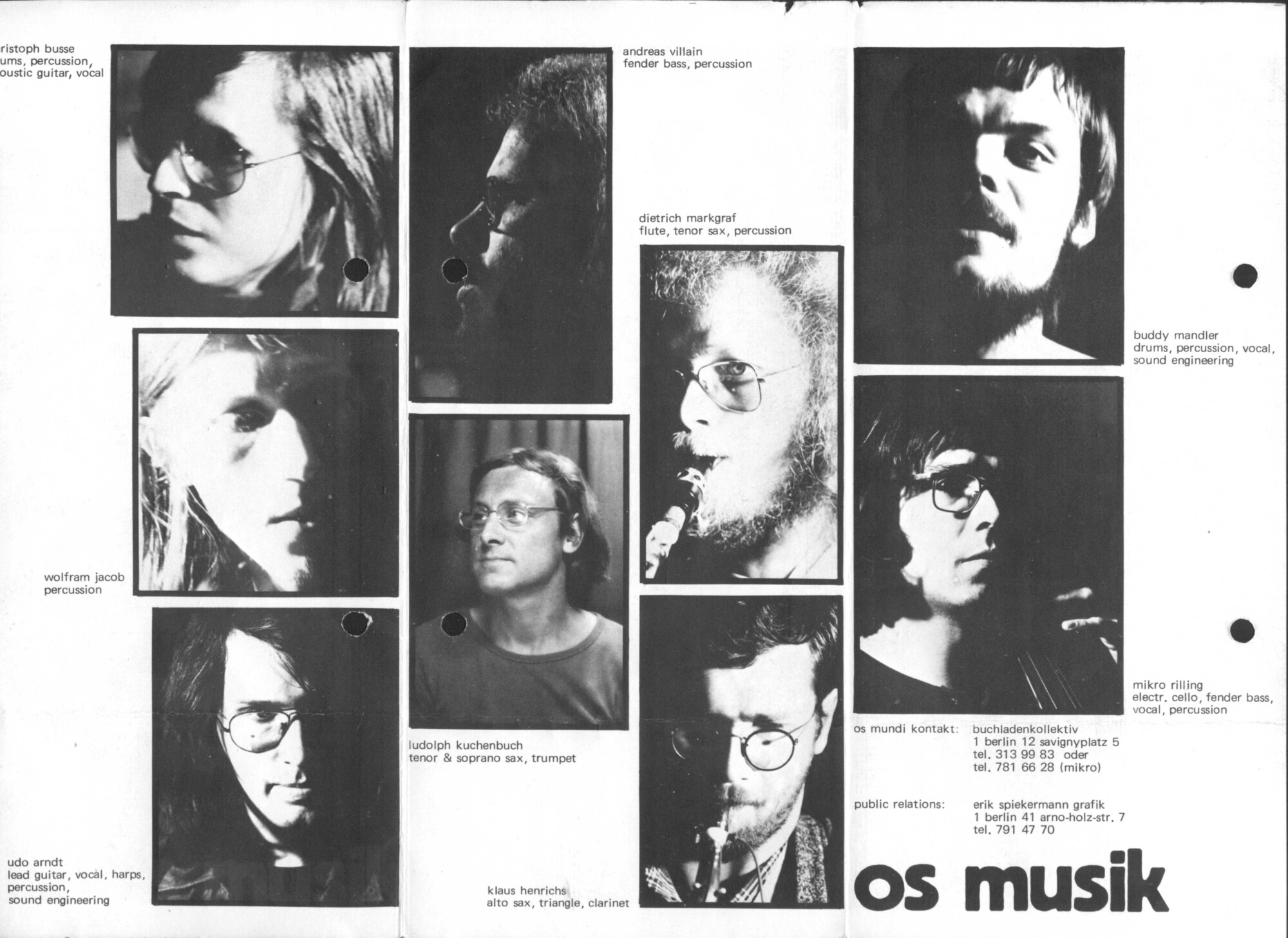
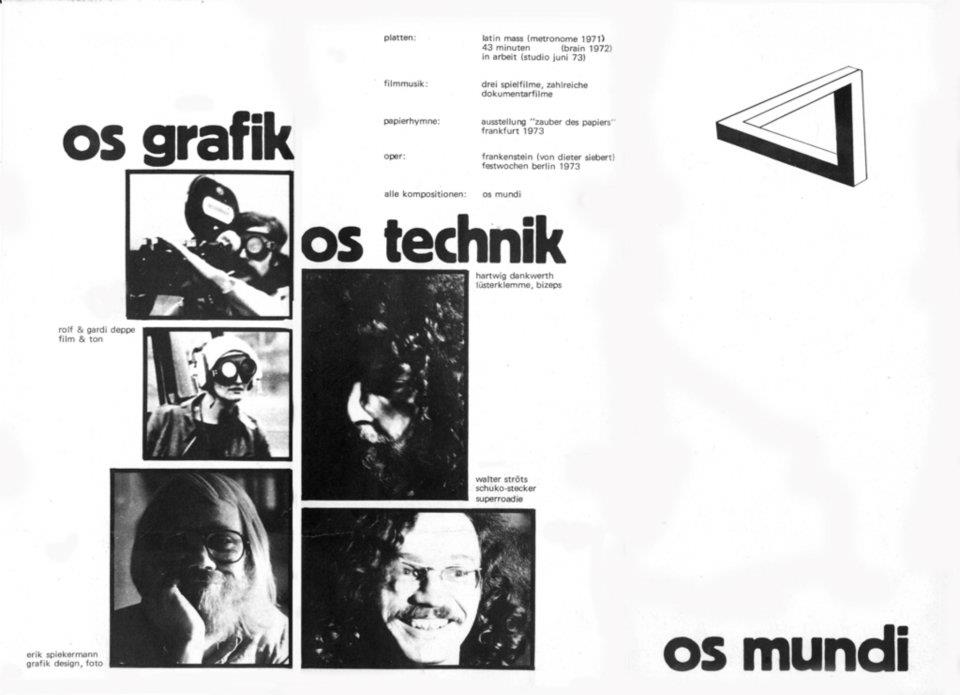
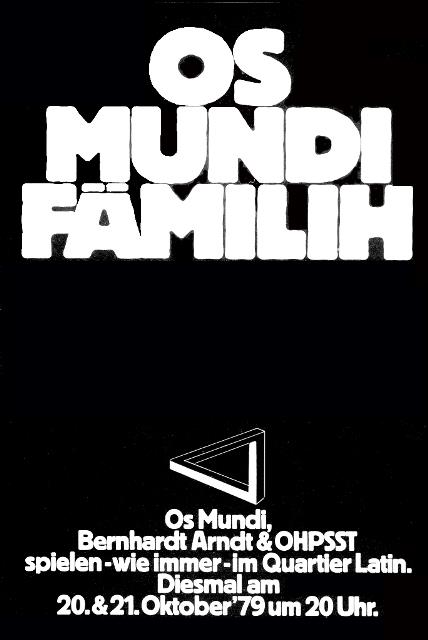
What happened after the band stopped (and when was that)? Were you still in touch with other members? Is any member still involved with the music?
Christoph Busse: They scattered to the four winds. Andi Villain went to Switzerland as a psychotherapist. Udo Arndt moved to Spain and produced music there and in Germany with great success. Ludolf went to Hagen as a history professor. Buddy Mandler moved to Norway, now lives in France and occasionally plays drums in various bands. Ute Kannenberg stayed in Berlin and became a singing teacher. Dietrich Markgraf had to end his musical career. He has been paralyzed in a home since he fell from a horse. Klaus Henrichs lives in Regensburg as a saxophone teacher and tap dancer. Mikro Rilling founded a business company in Berlin and played together with Ludolf and Klaus in a free jazz band Oohpst. And I made hundreds of films for “samstrasse” and had a significant career as a music producer, composer and lyricist. (Dan McCafferty from Nazareth, Novalis, Hans Hartz, Nana Mouskouri et cetera).
Wolfgang “Buddy” Mandler: Some of us are in contact with each other and we had a meeting with the remaining members in Berlin two years ago.
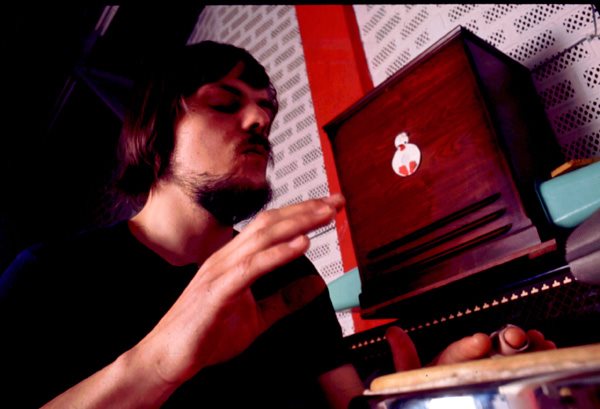
Looking back, what was the highlight of your time in the band? Which songs are you most proud of? Where and when was your most memorable gig?
Christoph Busse: The annual “Os Mundi revival” concerts because we came together from all over the world and saw each other again. I wrote all the lyrics. (The music mostly came from the others). My big hits only came in the 80s. From Os Mundi: ‘But Reality Will Show’ / ‘Triple’ / ‘Children’s Games’… Most memorable gig? That would be in Berlin 1979, Latin Quarter.
A third album was never properly completed, although the band did exist on and off until 1980. Please tell us about the third album. Will we ever hear it?
Christoph Busse: Since we only met for revival concerts in the 70s, a third album was not planned. However, there is now a third album with unreleased material, without my involvement.
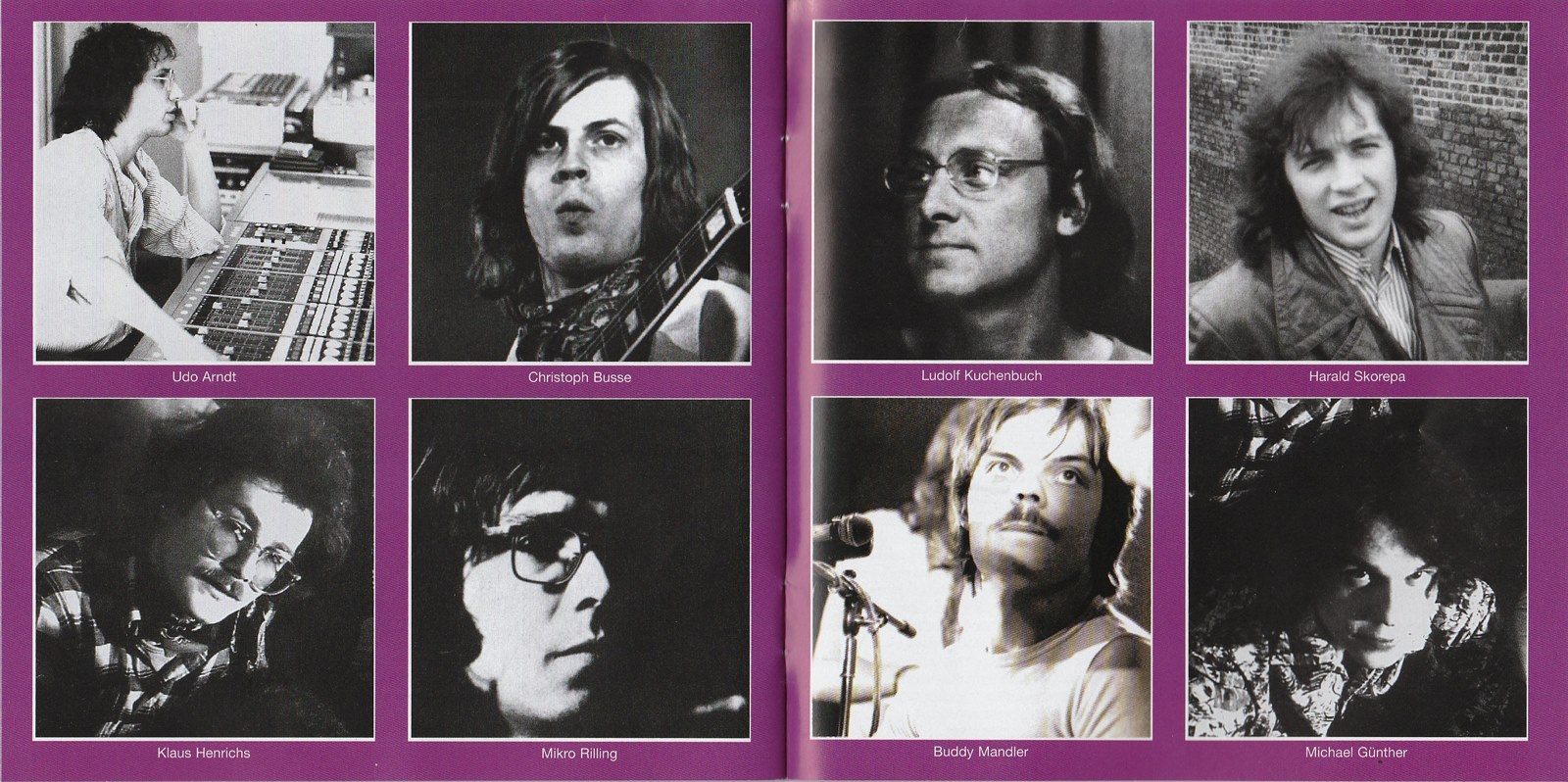
Is there any unreleased material by Os Mundi or related projects?
Christoph Busse: There is a concert recording from a RIAS (radio) concert as an mp3.
What are some of the most important players that influenced your own style and what in particular did they employ in their playing that you liked?
Christoph Busse: Each of us had our own role models. But that was so long ago. Today I no longer have any role models. As a musician I loved Mahavishnu Orchestra, of course with the incredible Billy Cobham. I also loved Iron Butterfly and Keith Jarrett. Privately I also enjoyed Bob Dylan, Blind Lemon Jefferson, The Beatles, Chicago and Blood, Sweat & Tears.
You did a lot of studio work, if I’m not mistaken.
Christoph Busse: I have produced a lot of artists…
How did you begin your work with Hans Hartz?
Christoph Busse: I was looking for a singer for a theme song for a German television series that I had written. By chance I received a demo tape from Hans. There were songs on there that didn’t show what I was looking for at all. He sounded like a gentle crooner. But in one song he sang with this gravelly voice (ala Joe Cocker) that made me sit up and take notice. And so fate took its course. He was accepted, we made the first of five albums and it was a huge success. In particular, the hit ‘Die weißen Tauben sind müde’ sold millions of copies.
What currently occupies your life?
Christoph Busse: I continue to write songs and scripts and enjoy my retirement.
Wolfgang “Buddy” Mandler: Udo Arndt (guitar/vocals (lives in Spain and has retired from his work as a producer/sound engineer. Christoph Busse (drums/guitar/vocals) lives in Hamburg and is still active in media production. Prof. Dr. Ludolf Kuchenbuch lives in Berlin and plays saxophone in a free jazz band. Klaus Henrichs lives in Bavaria and teaches saxophone. I live in France and play drums occasionally in a blues band and on jam sessions.
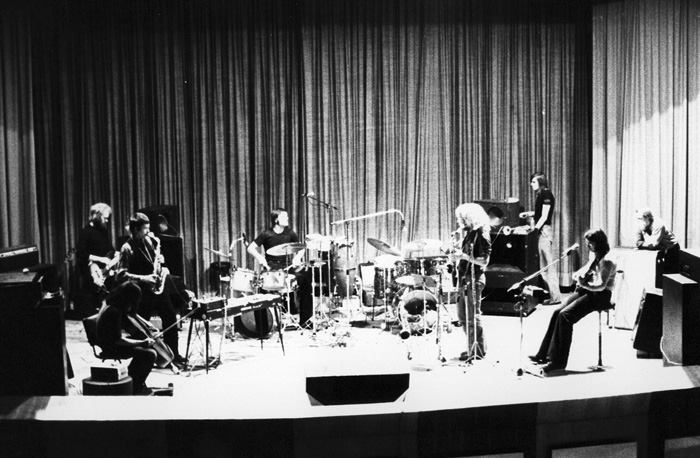
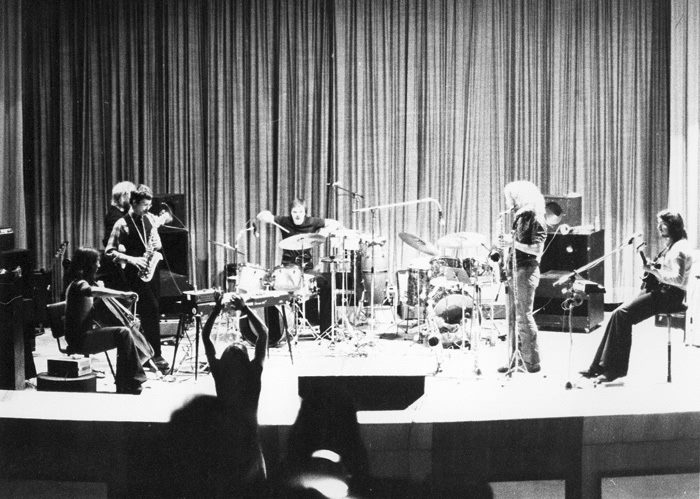
Thank you for taking your time. Last word is yours.
Christoph Busse: In December, a solo album by Dan McCafferty, who unfortunately passed away last year, was released, produced and mostly written by me, ‘In Memory of Dan McCafferty – No Turning Back‘. It’s available on CD and on vinyl.
Wolfgang “Buddy” Mandler: I believe that all the members of Os Mundi were lucky to be active in a time of change and they had the opportunity to experiment with music.
Klemen Breznikar
Os Mundi Facebook

